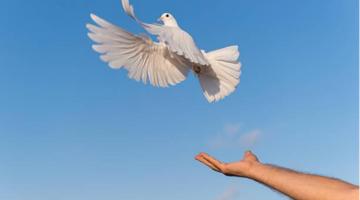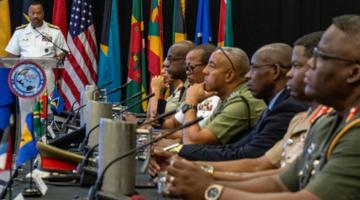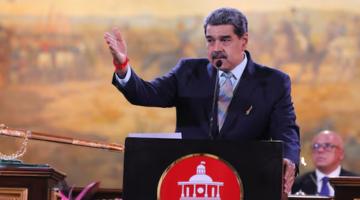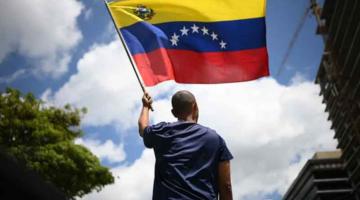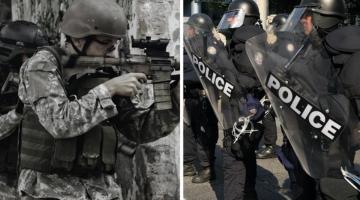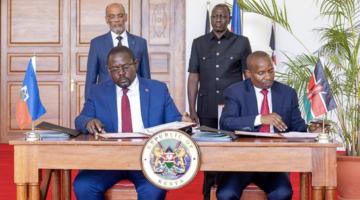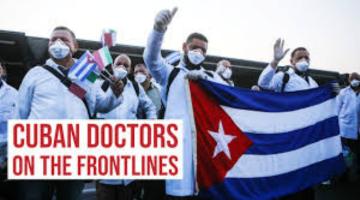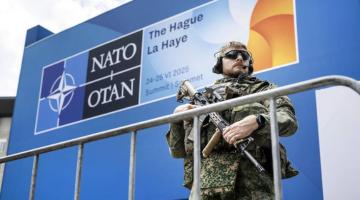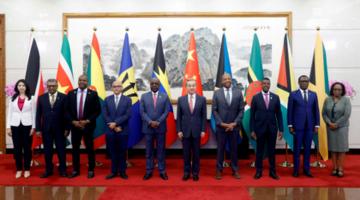When oppressed people get organized, the US gets angry. It's been punishing the people of Cuba since 1962.
On November 2, the UN General Assembly voted overwhelmingly for a resolution calling on the US to lift the trade embargo against Cuba that President John Kennedy imposed in 1962. The US and Israel were the only two nations to vote no, with Ukraine abstaining. Total dependence creates total compliance.
The US Treasury’s Office of Foreign Assets Control records complex specifics of sanctions on Cuba. There are so many that they amount to a virtual blockade.
“You talk about sanctions,” says Cuban journalist Liz Oliva Fernández, “you think ‘OK, maybe the United States has one, two, or three sanctions on Cuba,’ but I’m talking about a blockade—a system of sanctions. There are so many sanctions together on Cuba that it’s unique. This is the only country that has been suffering under so many sanctions for so long.
“The goal is to overthrow the government, to suffocate the people so hard that they want to overthrow their own government.”
Sanctions, she said, also isolate Cuba from the rest of the world, because US trade, banking, and business relations are so far- flung that doing business with other parts of the world also involves business with the US. In her six-part documentary series “The War on Cuba,” she gives the example of Ernesto, a farmer who needs two prosthetic legs. Ernesto has prosthetics but can’t get the flexible type he needs because they’re made by a German company that uses a US-manufactured material for more than 10% of their content.
“The 10% of the raw material that they use for these prosthetic legs is made in the United States, or by a United States company,” she says. “So that means it’s illegal for Cuba to buy the prosthetic legs that Ernesto needs.”
“I’d walk more. I’d even be able to work a lot more,” Ernesto says. “But we don’t have access to them because of the blockade.”
“And this is with everything,” says Fernández. “Imagine that you want to buy tractors. Maybe the seats of the tractors are made in Mexico but they have parts that are made in the US, or a US company owns part of the company that makes the tractors, so it’s a violation of US law for anyone to sell Cuba the whole tractor.”
Her docuseries includes Cuban farmers using horse-drawn plows.
“This is the United States. It’s an empire. So they have businesses around the world. They have stocks around the ` world in different companies. So we can’t even purchase what we most need to purchase in Cuba, including medicines and materials needed to manufacture medicines.
“US law makes it illegal for companies to do business with Cuba. If you do business with Cuba, you could lose your business with the United States. You have to choose between doing business with the United States and doing business with Cuba, and of course, if they’re forced to make that choice, most every company will choose to do business with the United States.”
Trump added Cuba to the State Sponsors of Terrorism list, which made foreign companies even more afraid of doing business there.
Uphill on the Hill
Fernández has been touring the US showing “Uphill on the Hill,” a film in which she narrates the story of her quest to ask members of the US Congress why they and the Biden Administration are so determined to sustain the brutal sanctions. In particular she seeks to speak to the Cuban American legislators who have most aggressively insisted that the sanctions be sustained.
Not surprisingly, they all give her the brush-off, and she wryly checks them off her list one by one. Ultimately she does manage to join a delegation meeting with Massachusetts Congressman Jim McGovern, a longtime opponent of the sanctions on Cuba. Pierre LaBossiere of Haiti Action Committee has a cameo in that scene in which he asks why the US punishes Cuba and lends so much support to Haiti, where the corrupt government kills its own people.
After the Cuban American legislators refuse to meet with her, Fernández meets Medea Benjamin and other members of Code Pink. Fernández then says she’s realized that Washington, DC is a Black city, so, being Afro Cuban, she’s going out to talk to people who look like her. One after another, they tell her that there’s no reason for the sanctions and they oppose them. In a choice comic moment, one says he’d like to see the sanctions lifted because he’s a cigar smoker.
Obama, Trump, and Biden
During his second term, when he no longer had to worry about the Miami Cuban vote in the swing state of Florida, President Obama loosened the trade restrictions, saying it did not serve US interests to make the Cuban state collapse. He even traveled to Cuba to announce his policy. This, Fernández said, brought a sudden, short-lived burst of optimism, trade and prosperity to Cuba, which she describes in Episode One of “The War on Cuba.” The Rolling Stones even appeared to perform in Havana after the embargo was lifted.
Trump reversed Obama’s policy, even though he himself had actually applied for licenses to do business in Cuba before becoming president. After becoming president, he tightened and even instituted new sanctions in order to placate the reactionary Miami Cubans.
“All the concessions that Barack Obama has granted the Castro regime were done through executive order, which means the next president can reverse them,” he said, speaking at a campaign rally in Miami. “And that I will do.” And he did.
Fernández said that Biden has not returned to Obama’s policies, most likely because he has unrealistic hopes of winning Florida in 2024.
Fernández on tour
The dates, times, and locations of Liz Fernández’s upcoming appearances in Seattle, Albuquerque, and Tampa are on the website bellyofthebeastcuba.com, where you can also find “The War on Cuba.”
During the Q&A at her appearance at Oakland’s La Pena Cultural Center, someone asked her how the Cuban economy works, to which she teared up and answered, “It doesn’t, because of the blockade.”
Ann Garrison is a Black Agenda Report Contributing Editor based in the San Francisco Bay Area. In 2014, she received the Victoire Ingabire Umuhoza Democracy and Peace Prize for her reporting on conflict in the African Great Lakes region. She can be reached at ann(at)anngarrison.com. Please help to support her work on Patreon.


